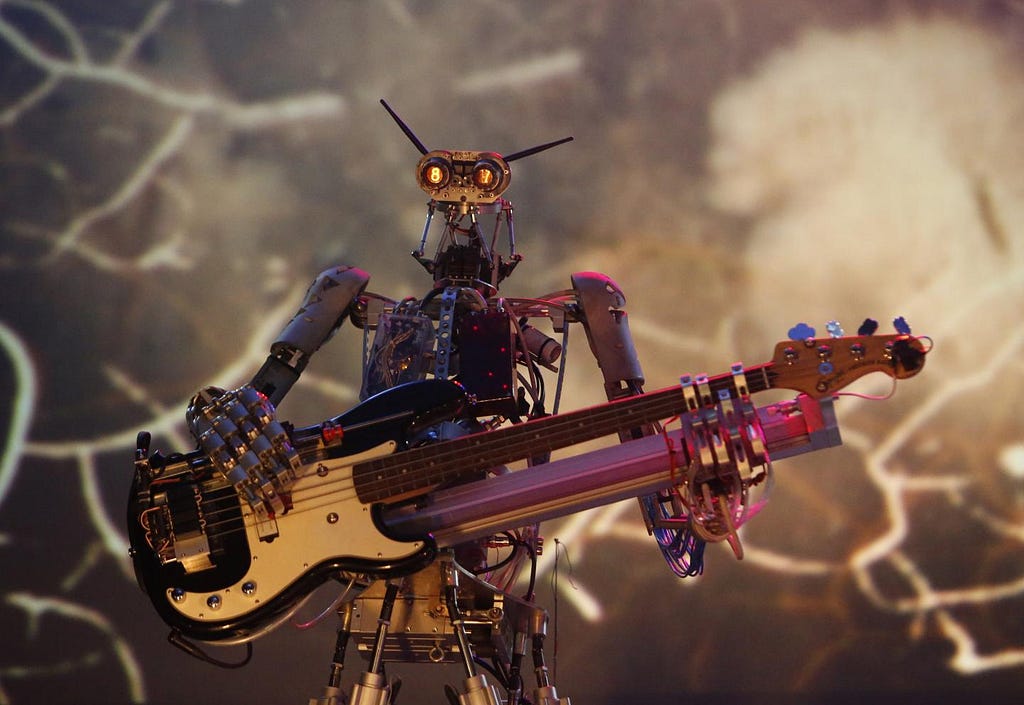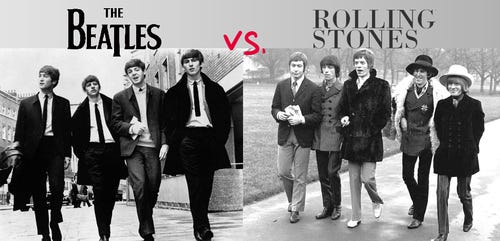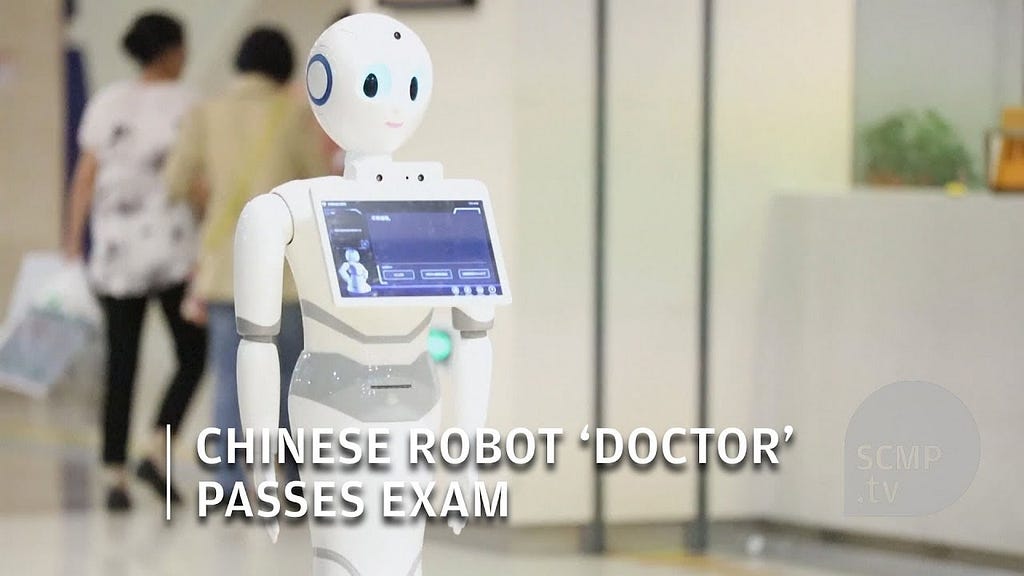Latest news about Bitcoin and all cryptocurrencies. Your daily crypto news habit.

If Hollywood special effects artists could have dreamed up a terminator for golf fans in the 1990s, they would have probably built something that looked a lot like Tiger Woods. A golf champ almost since birth — winning a putting competition for kids 10 and under when he was just two years old — Woods arrived on the PGA tour in 1996 like a gold club-wielding T-800 Model 101.
Received wisdom might suggest that Woods’ dominating performance on the links would, like an irresistible tsunami of competition, raise the level of every other golfer in the PGA. But, according to Albert-László Barabási, who just wrote a new book on success, called The Formula, that isn’t the case. The Tiger Woods Effect, as it’s often referred to, actually caused his fellow golfers to underperform. His colleagues tended to shoot .7 to 1.3 higher when the competed against him. When Vijay Singh competed against Woods, he shot about 15 strokes over par, writes Barabási who serves as the Robert Gray Dodge Professor of Network Science and a Distinguished University Professor at Northeastern University. When Woods was out of the competition due to a knee injury, Singh came in ten under par.
And what about the Rolling Stones? Most people believe that during the 60s, the competition between the Rolling Stones and the Beatles caused the Stones to perform better and become more musically innovative. That’s probably not the case. First, the Beatles never really considered the Stones their musical equals. In fact, the Who and, oddly enough, the Beach Boys — primarily the band’s musically gifted leader, Brian Wilson — could be credited with stirring the competitive fires in the Fab Four. During the years when the Beatles were at their peak creatively, the role of the Stones was relegated to being something like the Liverpool band’s wise-cracking frenemy. When the Beatles produced the masterpiece, Sgt. Pepper’s Lonely Hearts Club Band, the Stones answered with a weak psychedelic knockoff, Their Satanic Majesties Request.
According to The Vinyl District: “Aside from ‘She’s a Rainbow’ and ‘2000 Light Years from Home,’ you’re highly unlikely to hear any of Satanic Majesties’ songs anywhere, and the Stones themselves haven’t had much good to say about it over the years. Keith Richards called it ‘a load of crap,’ while Mick Jagger said ‘there’s a lot of rubbish’ on it.”
However, as the Beatles fell into a funk and their creative powers seemed sapped by constant in-fighting — for bands, that’s like a career-ending knee injury — the Stones’ next response album, Let It Bleed, was a powerful, gritty counter to the Beatles’ Let It Be. Clearly, the Stones were no longer content to be the opening act for the biggest band of the century. When the Beatles exited the music scene for good as a group, the Rolling Stones would soar to even higher creative heights with Sticky Fingers and Exile on Main Street.
Barabási explains that the Tiger Woods Effect — which might also be labeled the Four-Headed Monster effect, in the case of the Beatles — is a simple case of the power of superstar competition to suppress and intimidate us into second-place performances.
“Our intimidation in the presence of luminaries is so deeply embedded that we probably don’t notice how much it skews outcomes in favor of those whose success is already so rampant,” writes Barabási.
This is speculative, but it may be instructive to extend Barabási to the arrival of the next real superstar — artificial intelligence. According to many AI experts — and critics — artificial intelligence is set to become the next great human competitor and just about all of us are going to be forced to reckon with this superstar eventually. Not if, but when.
Already, AI and automation has made a dent on the job market, replacing many positions formerly held by humans and it’s just taken a couple minor swings so far with harder blows predicted in the near future. If we listen to this lesson from The Formula’s universal laws of success, we’re basically screwed.
But, Barabási says all is not lost. The key to long-term success is collaborating with a superstar, not competing against him, her — or, in our case, it.
“Superstars suppress you if you compete against them, but they may boost you if you cooperate with them,” Barabási counters.
As an example, he says that superstar researchers, like quantum physicist Steven Weinberg, don’t just improve the performance of their close colleagues, but lift the performance of entire departments and colleges. In fact, when a superstar researcher dies, his or her collaborators’ productivity dips 5 to 8 percent!
For humans facing the oncoming tide of AI superstar workers, the lesson might be to find ways to use AI to enhance their own performance, not go full-Luddite on them. At least in the near future, humans would certainly hold advantages over AIs because of our emotional rapport with our fellow humans, our creativity, and our understanding of emotions.
AI Medical Superstars
Artificial intelligence is already a superstar in the medical industry. Just recently, an AI algorithm could read chest X-rays almost as accurately as human radiologists, according to a Stanford University study.
The researchers said that when they programmed the AI to analyze 14 different pathologies, it did as well as the humans, in one it did better, and it underperformed its human counterparts in three.
But, this AI doc did it far faster.
The researchers behind this study say they aren’t out to make doctors obsolete, they’re out to make treatments better by coupling the power of artificial and human intelligence. Matthew Lungren, assistant professor of radiology, one of the researchers behind the algorithm, said the goal is to use AI to take better care into places where radiologists aren’t available and to use it to make current care faster.
The human-AI model is already being rolled out in China, according to the South China Morning Post, healthcare providers are planning to build telephone booth-sized AI-powered clinics. The patient just goes into the booth, an AI collects data through text and voice interactions. That information is then reviewed by a human doctor who gives the patient a diagnosis and possible drugs and treatments. Those drugs, by the way, might be available from a vending machine in the same booth!
Financial Technology
The financial technology, or Fintech, industry, could be another area where the intuitive genius of human beings could augment the hyper-logical power of AI. Human investors are caught in a catch 22 with technology. Human traders struggle with processing huge amounts of data and coming up with smart trades that aren’t clouded by bias and poor forecasting. Algorithms have no trouble with data processing and making decisions. But, that’s not how markets work, exclusively. Because markets are composed of those biased, emotionally charged humans, algorithms tend to perform poorly when investing environments become noisy.
The best system would take the strengths of AI, which could provide rational investing suggestions and piece it with humans who can override those calls when they sense the market has changed, or is just too risky to navigate.
Ganesh Padmanabhan, who leads Market Dev at CognitiveScale, sees that AI will replace a lot of jobs in the finance industry, but through cooperation with machine intelligence, humans can max out their own creativity and productivity.
“Financial services workers will leverage machines to augment decision making and the customer experience and will continue to excel over machines in a variety of skills like creativity, interpersonal relationships and emotional dexterity to name a few,” Padmanabhan writes. “This will lead to the creation of new jobs and opportunities.”
Unbounded Success?
If — and that’s a big if — AI and human beings can merge into one team, their potential to tackle challenges would be nearly unbounded. Barabási’s formula for success, however, rests on a key insight. At the end of the day, it will be psychology that shapes success with — or without — AI partners.
“Hopelessness, not superstars, is what’s so defeating,” Barabási writes. “We’re less likely to show up to the polls if we think our underdog candidate doesn’t stand a chance and less likely to apply for a job if we’re not a shoo-in. And we’re less likely to speak up if we believe someone else in the room inherently knows far more about the subject. But if we come to competition assuming equal footing, we’re far more likely to succeed.”
When AI Hits Rock Star Status was originally published in Hacker Noon on Medium, where people are continuing the conversation by highlighting and responding to this story.
Disclaimer
The views and opinions expressed in this article are solely those of the authors and do not reflect the views of Bitcoin Insider. Every investment and trading move involves risk - this is especially true for cryptocurrencies given their volatility. We strongly advise our readers to conduct their own research when making a decision.

